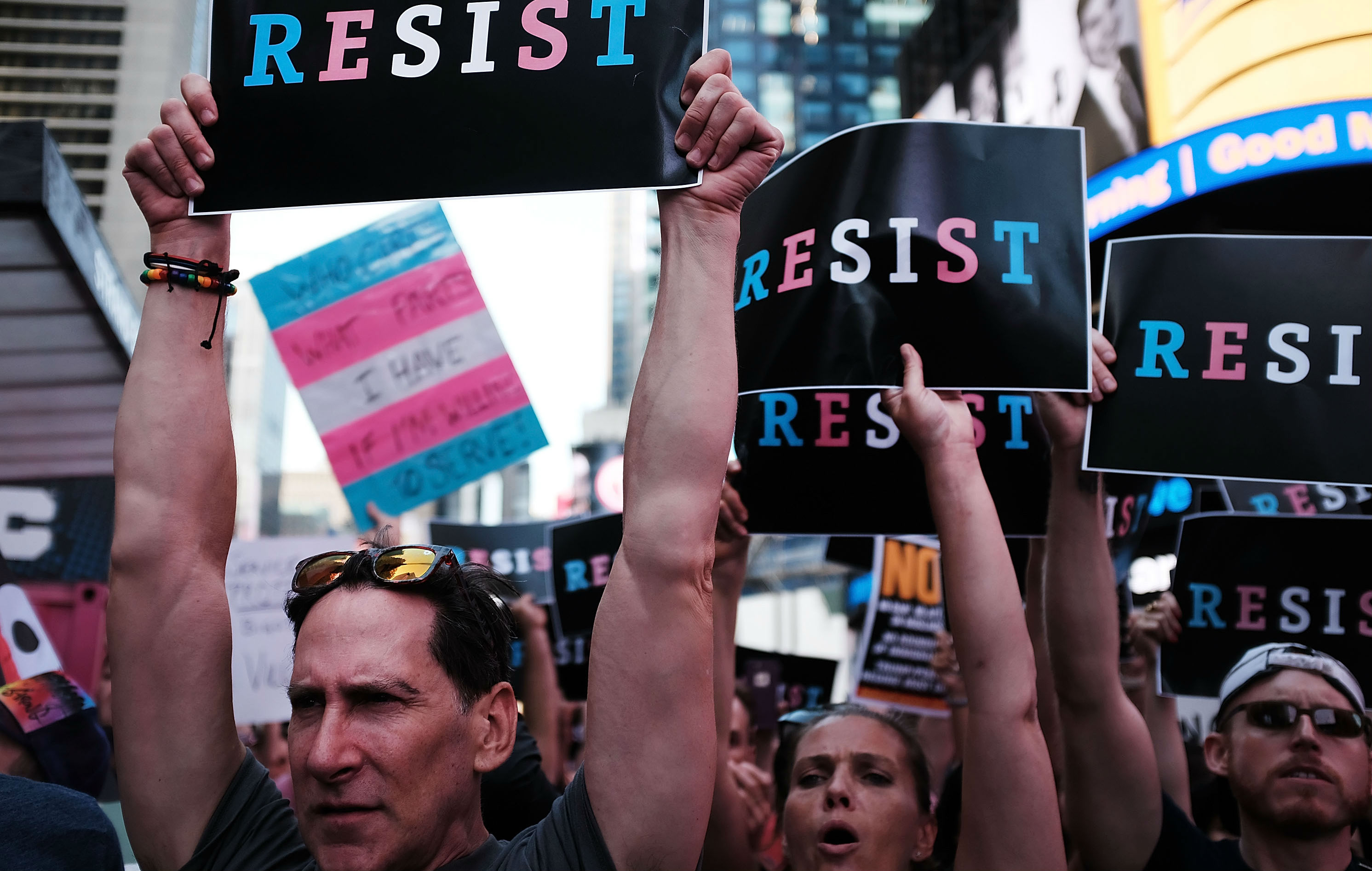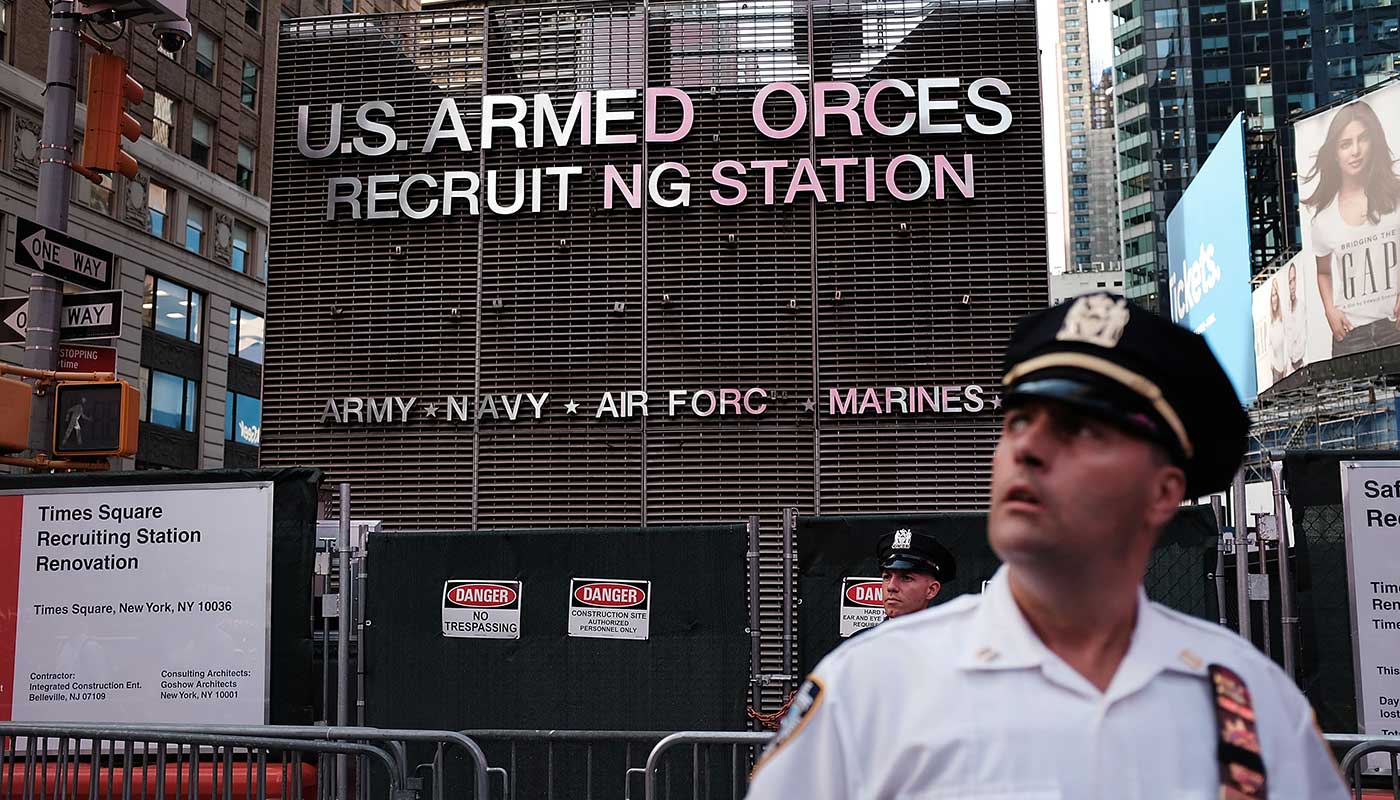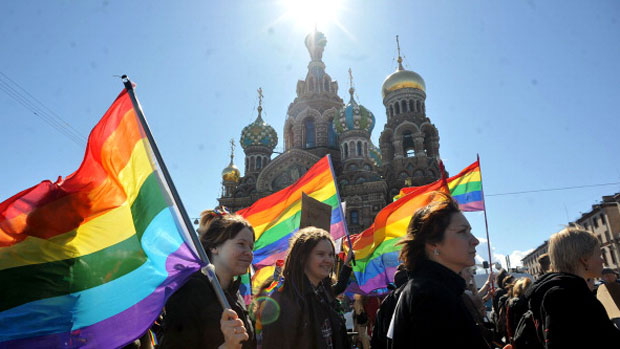How Trump's transgender ban will affect the US military
The US President cited medical costs - but trans healthcare represents just 0.001 per cent of the military budget

A free daily email with the biggest news stories of the day – and the best features from TheWeek.com
You are now subscribed
Your newsletter sign-up was successful
Donald Trump's decision to reinstate a ban on transgender people serving in the US military provoked a swift backlash yesterday - as well as equally vocal support from some conservatives.
He said the "tremendous" cost of medical treatment was too much for the US military to bear. His opponents say the figures involved represent a tiny fraction of the military budget - and that the ban will reinforce prejucide against transgender people.
Here's the background to Trump's decision:
The Week
Escape your echo chamber. Get the facts behind the news, plus analysis from multiple perspectives.

Sign up for The Week's Free Newsletters
From our morning news briefing to a weekly Good News Newsletter, get the best of The Week delivered directly to your inbox.
From our morning news briefing to a weekly Good News Newsletter, get the best of The Week delivered directly to your inbox.
What's the current position?
Last year, Barack Obama approved a policy that would have allowed transgender people to serve openly in the US military for the first time. It paved the way for the recruitment of those considered "stable" in their gender, the BBC reports, and proposed medical care for people wanting to change gender. It was supposed to come into effect this month.
What will change?
Trump's decision means Obama's policy will die before it comes into effect - and the ban on openly transgender military personnel remains.
A free daily email with the biggest news stories of the day – and the best features from TheWeek.com
The reversal did not come completely out of the blue. Last month, US Defense Secretary Jim Mattis delayed the new policy to assess its impact on military "readiness and lethality", reports CNN.
The White House has not announced any details of the ban, nor how it will be implemented, but Trump said transgender individuals will not be allowed to serve "in any capacity":
What are the costs?
Although Trump gave no figures, a Rand Corp study commissioned by the US Defense Department last year estimated additional annual costs of between $2.4m (£1.8m) and $8.4m (£6.4m). The higher figure represents an 0.13 per cent increase in active healthcare expenditure - and "and at most about 0.001 per cent of the Pentagon's nearly $600bn budget", says the New York Times.
According to the Washington Post, the US military spends $41.6m (£31.7m) each year on viagra - almost five times the projected cost of healthcare for transgender people.
What else might have led to trump's decision?
Trump also said lifting the ban would cause "disruption" within the armed forces, and his press secretary, Sarah Huckabee, said it could "erode military readiness and unit cohesion".
But the San Francisco Chronicle said Trump's tweets had a broader purpose, demonstrating his willingness to return "to the culture wars of recent decades", particularly those involving sexuality.
The decision may prove popular among at least some of his supporters. "Conservatives applauded the president's move, saying transgender politics and medical costs they can bring with them — small though they may be — have no place in the military’s ranks or budgets," the Chronicle reports.
How many transgender people will be affected?
The Rand Corp study said that between 1,320 and 6,630 transgender people serve in the military, although the Washington Post cites estimates as high as 11,000. Trump's announcement will also affect transgender people who had hoped to join the military once the ban was lifted.
Asked whether transgender personnel on active service would be expelled from the military, Huckabee said that was "to be determined".
Serving transgender members of the military said they had effectively been fired by tweet, while former soldier and transgender woman Chelsea Manning accused the world's biggest and richest armed forces of cowardice.
New recruits may have to live under the historic "don't ask, don't tell" policy previously applied to gay personnel, the BBC reports, meaning they can serve as long as they keep quiet about their identity.
What do US allies say?
According to Newsweek, 18 other nations have "fully legalised" transgender military service. Britain is among them, as is the close US ally Israel.
The Ministry of Defence told the Daily Telegraph that it would not comment on US military recruitment policy. However, it also said that "all LGBT+ members of our armed forces play a vital role in keeping our nation safe" and that the British military would "continue to welcome people from a diverse range of backgrounds, including transgender personnel".
Canada's military expressed a similar stance.
-
 Pentagon to allow transgender military recruits
Pentagon to allow transgender military recruitsSpeed Read Enlistment will begin on 1 January despite Donald Trump’s ban
-
 Russian gay attacks 'no worse than UK abuse of gingers'
Russian gay attacks 'no worse than UK abuse of gingers'Speed Read Russian embassy objects to Channel 4 documentary exposing gangs who hunt and torture gay people


